Volleyball is a gentlemen’s game. No, I don’t mean that only men play it; volleyball is a game with a high level of sportsmanship. There’s no tackling, jostling, or even contact with the other team. In fact, the two teams are separated by a net, to ensure there is no contact.
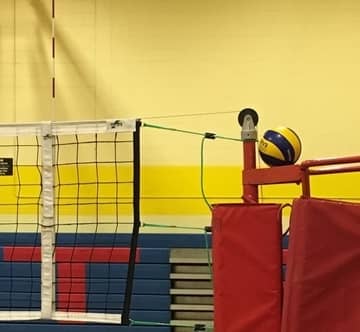
Every sport has an official set of rules. Usually, breaking one of these rules can mean losing a point. However, there’s also the unwritten rules, or the etiquette, of the sport. Not following the etiquette won’t result in losing a point, but you’ll still want to be aware of it, and try to follow it.
The following unwritten rules apply mainly to formal league or tournament games with official referees. Some may also apply to pickup or informal games, but usually these types of games are much less official, so the tone really depends on the players.
1. Help with setting up and putting away the equipment
Setting up the net and getting the court ready is a necessary part of every game. It is definitely NOT part of the referee’s job. If your league plays at a community recreation centre, the staff may do the setting up. However, for most leagues, it’s up to the players to setup and put away the equipment.
Even if you don’t know how to set up the equipment, just make yourself helpful and ask questions. An extra pair of hands is always welcome. And once you get the hang of it, it’s not that hard, and it actually doesn’t take that much time.
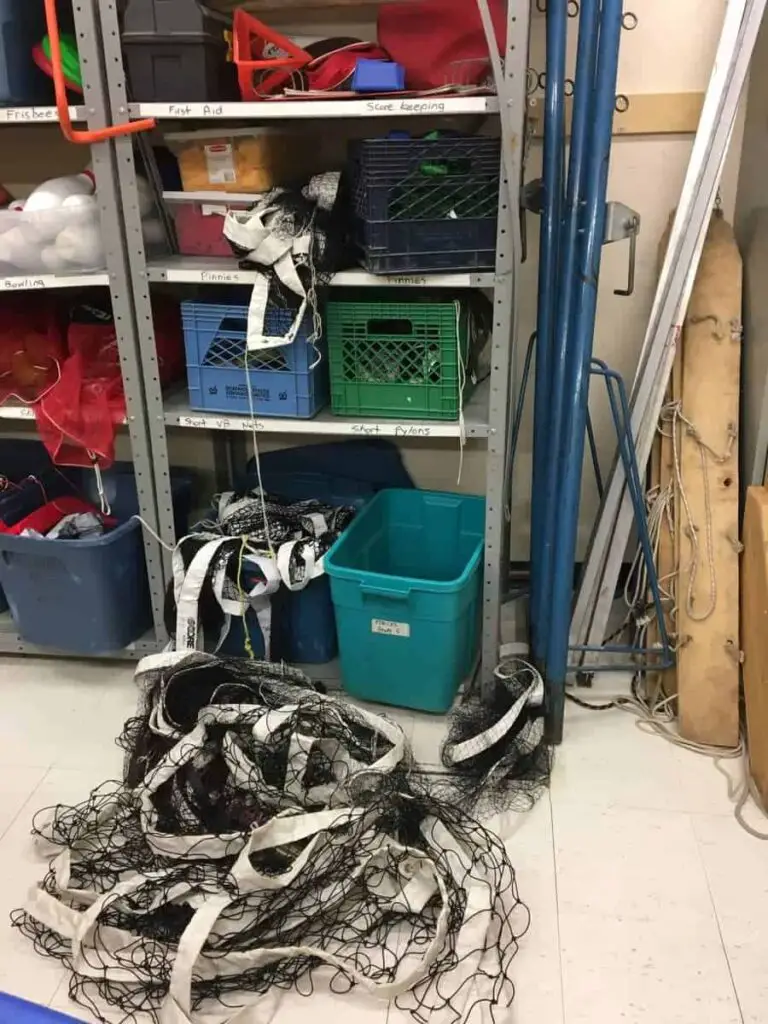
Now, it actually doesn’t take all 12 or more players to setup and clean up the court! Just make sure that you’re taking a turn, and that the same couple of players aren’t always the ones doing all the work. A good practice to follow is if you didn’t set up, then you should help put away the equipment. Or, if you didn’t help this game, then make sure you help at the next game.
2. No swearing!
Just like there’s no crying in baseball, there’s no swearing in volleyball. Unless it’s under your breath, just to yourself, and quiet enough so that no one else can hear you.
If you’re playing a game of pickup, or an informal game with no referees, this is really up to the tone of the group. However, even at adult games, when there’s no kids present, swearing is generally not tolerated by the referees. Just keep the language clean.
3. No trash talking the other team through the net
Although it’s tempting to trash talk the team, even good-naturedly, this also is often not tolerated by the referees. I guess there’s always the risk that even good-natured comments could be taken the wrong way, or that things could escalate into more serious comments.
If you’re tempted to make comments on the other team’s play, just keep it positive.
4. No trash talking the ref
And definitely don’t trash talk the ref, no matter how bad his or her calls may be. There is only one player on the court who should be talking to the ref, and that’s the court captain, who is assigned before the game starts.
Bad mouthing the referee could even result in a yellow card, or if it’s a heated enough exchange, a red card. A yellow card is a warning to the player to tone down their attitude, while a red card means getting kicked out of the game and giving a point to the opposing team. It’s up to you to decide if arguing about one play is worth sitting out the rest of the game – personally, I don’t think it is!
5. Always roll the ball under the net – don’t throw it
Whether it’s the other team’s turn to serve, or during warmup, always roll the ball under the net instead of throwing it over. It’s just a more controlled way of getting the ball to the other side of the court.
Also, between rallies, some players just aren’t paying attention to the ball anymore, so they may not realize the ball is coming their way. And during warmup, there’s always so much happening on the court, that a player could easily not see another ball that’s flying through the air.
6. Don’t roll the ball when a player is jumping

A volleyball court during warmup is pretty chaotic. There’s balls being hit, players peppering, and usually lots of shouting. And during hitting warmup, there’s always other players chasing down balls, and returning them to the other side of the net. As with #5 above, always roll the ball when you’re returning it.
However, if you see a player that’s just about to jump for a hit or a block, DO NOT roll the ball in their direction. It’s so easy for a player to land on a volleyball, which would just cause them to come crashing down to the floor and could result in a really bad injury.
Even with the best intentions, this can still happen. Sometimes a player goes to jump after the ball is already rolling. So, if you do see a ball rolling toward a player who is jumping, make sure you yell, “BALL!”. This is a pretty clear signal that there’s a ball on the loose, and any player who is about to jump should just STOP.
And, if YOU’RE the one that’s just about to jump, and you hear someone (or multiple someones) yelling, “BALL”, make sure you don’t jump. Even if it wasn’t meant for you, you won’t know until after you look, and it’s always better to be safe.
7. Don’t kick the volleyball
When rolling the ball to return it, it might be tempting to give that ball a swift kick instead of rolling it. However, this is generally thought to be inappropriate. While I’ve heard that kicking a volleyball can ruin the inside bladder because it wasn’t designed to be kicked, the fact that playing a volleyball with your foot is a legal way to play the ball makes this reason unlikely.
I believe it’s not customary to kick a ball similarly to why you shouldn’t throw it over the net – you just don’t have as much control over the ball as you do when you roll it.
8. Don’t roll your eyes when your teammate makes a mistake
Every player, at some point, is going to make a mistake. If there were no mistakes in volleyball, the rallies would never end! While it’s tempting to get annoyed at a teammate when he or she makes a mistake, just remember that everyone will, at some point, make a mistake. And whether it’s the first point, the fifteenth point, or game point, you should always support your teammates.
Even if your teammate has made that same kind of error multiple times, always remember that it can take a while to improve a technique, especially in a game situation. Old habits are hard to break, and new techniques are not comfortable, so it might take a few plays for a player to improve.
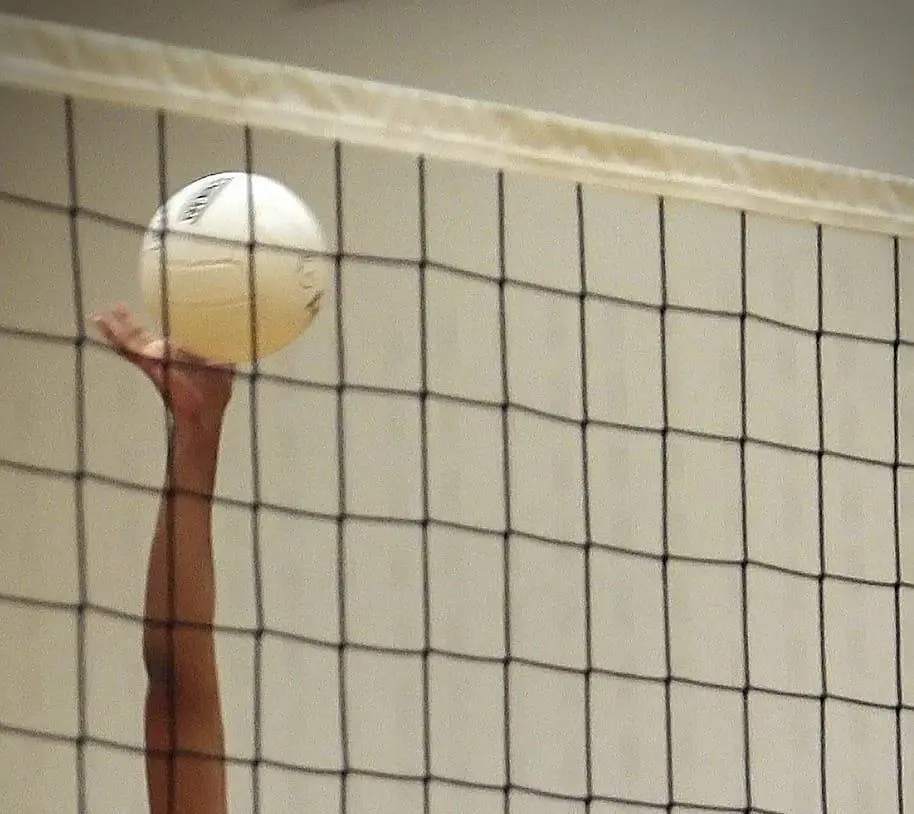
The best thing you can do when a teammate makes a mistake? Give them a low five, and say, “good try”. Chances are they are even more frustrated with themselves than you are with them. Be a supportive teammate, then move on to the next play. And who knows, the person that makes an error on the next play might just be YOU.
9. Own up to your mistakes
When it’s your turn to be the one making the mistakes, it’s always best to just own up to it. This is actually more for yourself than for your teammates. If you don’t acknowledge that you’ve made a mistake, you can’t even start to improve it.
So, if you hit the ball out, don’t blame the set – even if it was a bad set, you should have adjusted to it.
If you set the ball poorly, don’t blame the passer – you should have gotten there faster, or called for help.
Or, if you missed the dig, don’t blame the blockers – you should have read the hitter better, or you misjudged where to setup your defensive position.
Knowing how you could have improved the play you missed is the first step in improving it for next time. As I said above, everyone will make a mistake at some point in volleyball, so just shake it off, learn from it, and move on to the next play.
10. Don’t just set your friends

Whether you’re playing in a league or just some pickup, chances are you’ll be better friends with some of the players on your team than with others. However, during a volleyball game is not the time to be playing favorites. You should understand the strengths, and the weaknesses, of all your teammates, regardless of how much time you spend hanging out with them off the volleyball court.
All the players on the court have taken the time to show up, so everyone deserves an equal opportunity to get in on the game.
11. Don’t hit the ball after the whistle has blown
Once the ref blows the whistle, the play should come to an end right away. Not after one more touch, and definitely not after one more hit. Even if you just got the most spectacular set ever!
Once players hear the whistle blow, they are going to let their defensive guard down. Which means that if you still swing away at the ball, they will be totally unprepared for a spike. So not only is it good sportsmanlike behaviour to not swing at the ball after the whistle has been blown, it’s much, much safer.
12. There’s still lots to do when you’re sitting on the bench
Everyone will at some point take their turn sitting on the bench. However, this is not the time to be catching up on your social media! Even though you may not be one of the 6 players out on the court, you are still part of the team.
Volleyball is a very psychological game, and cheering is a critical component. As mentioned, mistakes will always be made, and knowing that your teammates have your back is important. Cheer the good plays and give good encouragement to your teammates when the rally is lost.
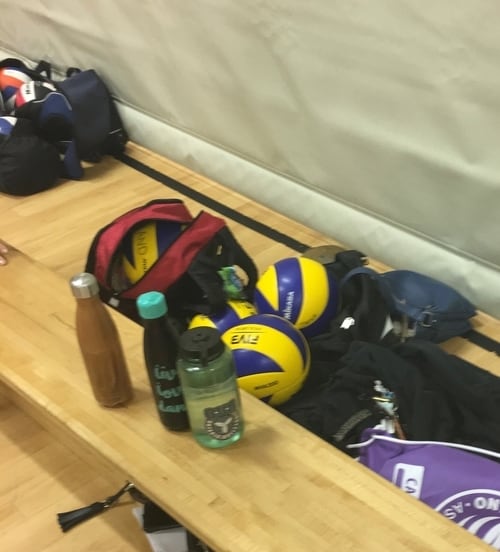
An advantage of sitting on the bench is that you can watch the other team and identify any strategic advice for your own team. For example, the other team may have some holes in their defense that you can suggest a hitter aims for. Or you may notice that a certain hitter always aims for the same spot. On the next time out, you can mention these tips to the rest of your team.
This might also be a good time to refill your water bottle, if you didn’t have time during the last time out. And be a good teammate and fill up any of your teammates’ bottles that have run low, too!
And don’t get too comfortable – you’ll want to be ready in case you get substituted back into the game. You’ll probably want to layer up so that you don’t cool down too much, but think about wearing layers you can easily put on and take off, such as a zip-up long-sleeve shirt. Click here for how to be a good bench player
13. Even when you’re not playing, keep an eye on the court
Whether it’s during a tournament or you’re taking your turn on the bench and you’re running out of the gym to refill your water bottle, make sure that you time your exit properly. Keep an eye on the plays, and make sure you’re not walking right in front of the server when they’re going back to serve. This can not only throw off the server, but it can also cause the whole game to be delayed while you walk past.
Also, keep in mind that even though there is a court boundary, players will often run past those boundaries when they’re chasing down a ball. And, they will be watching the ball – NOT where they’re going. So, if you’re watching a game, or just walking past the court during a rally, always keep an eye on the court, and the play. And if you see a volleyball player running towards you, make sure YOU get out of THEIR way!
14. Always shake hands at the end of the game
No matter how much rivalry may have been built up during the game, the match should always end with all players shaking hands with the other team and saying, “good game”, and then shaking hands with and thanking the ref. Even the players who were sitting on the bench for the last game of the match should line up and shake hands.
If you’re part of the winning team, this isn’t the time to gloat. It’s a time to acknowledge the effort the players on the other team put into the game.
And if you’re part of the team who didn’t win, this isn’t a time to be sulky or angry. Acknowledge the accomplishment of the other team, even if you’re not happy about it. Take a loss as a learning opportunity, and motivation to try even harder the next time you play!
And thanking the ref also acknowledges the effort they put into the game. It’s not easy being a ref – it takes a lot of confidence and concentration, so it’s nice to acknowledge their effort, too.
So, even though these tips won’t be found in the rule book, they’re still good practice to follow. They’ll help you to be a better teammate, and also a better competitor.
Related posts:


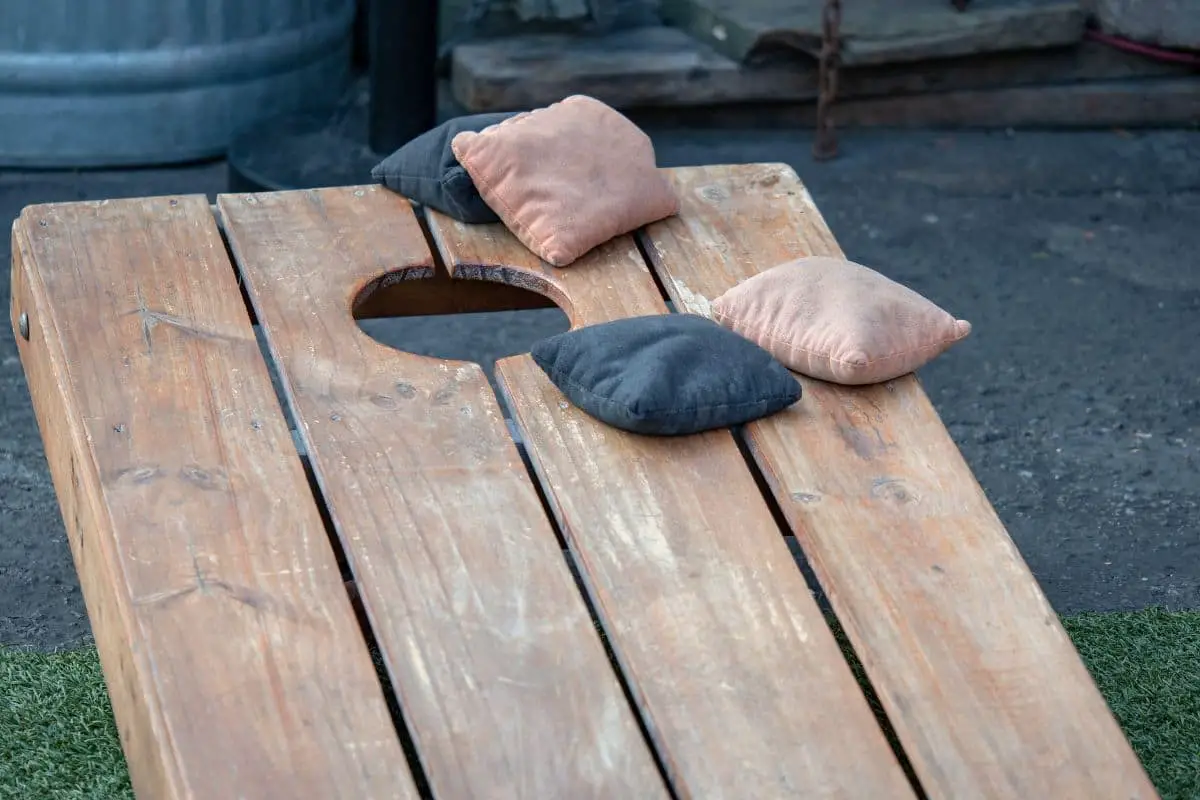
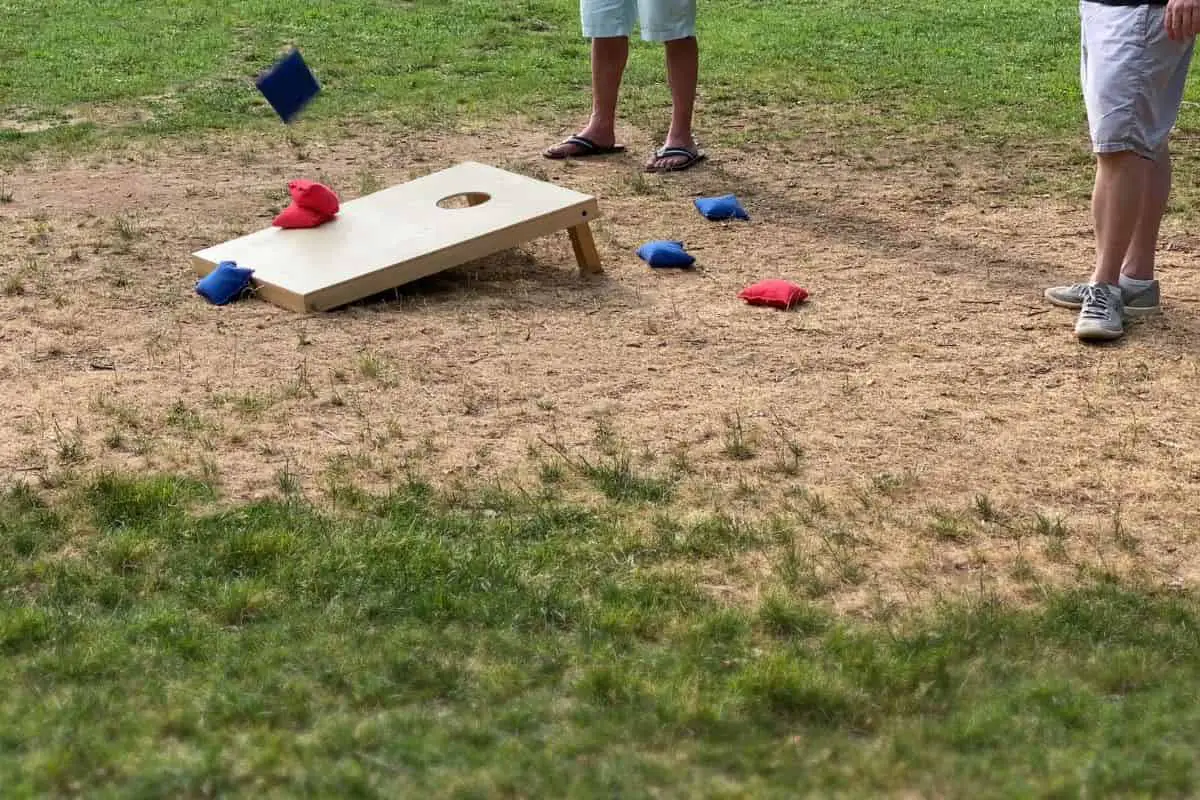

Leave a Reply
You must be logged in to post a comment.